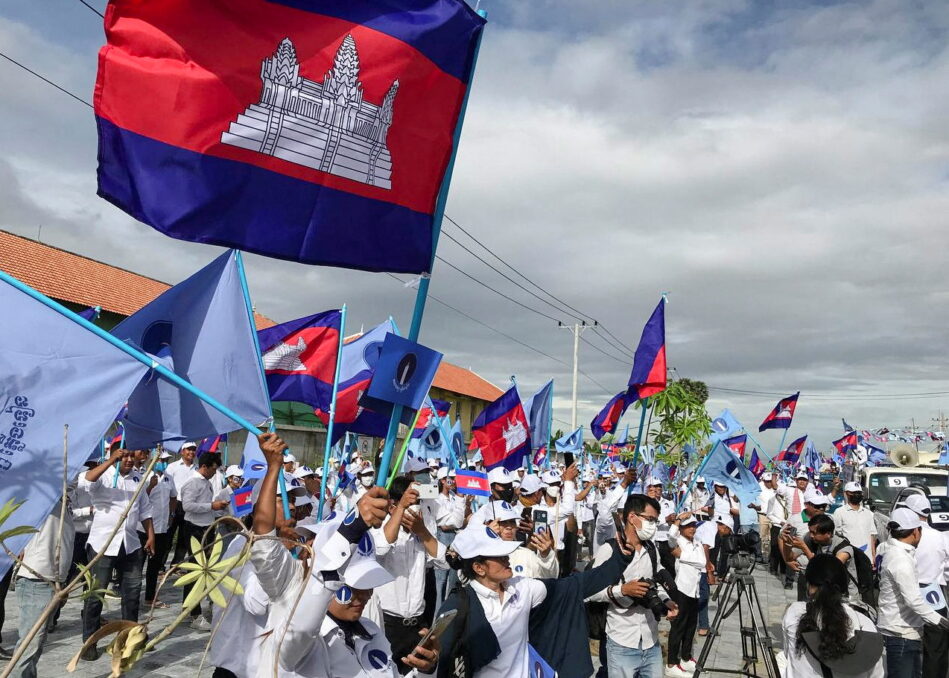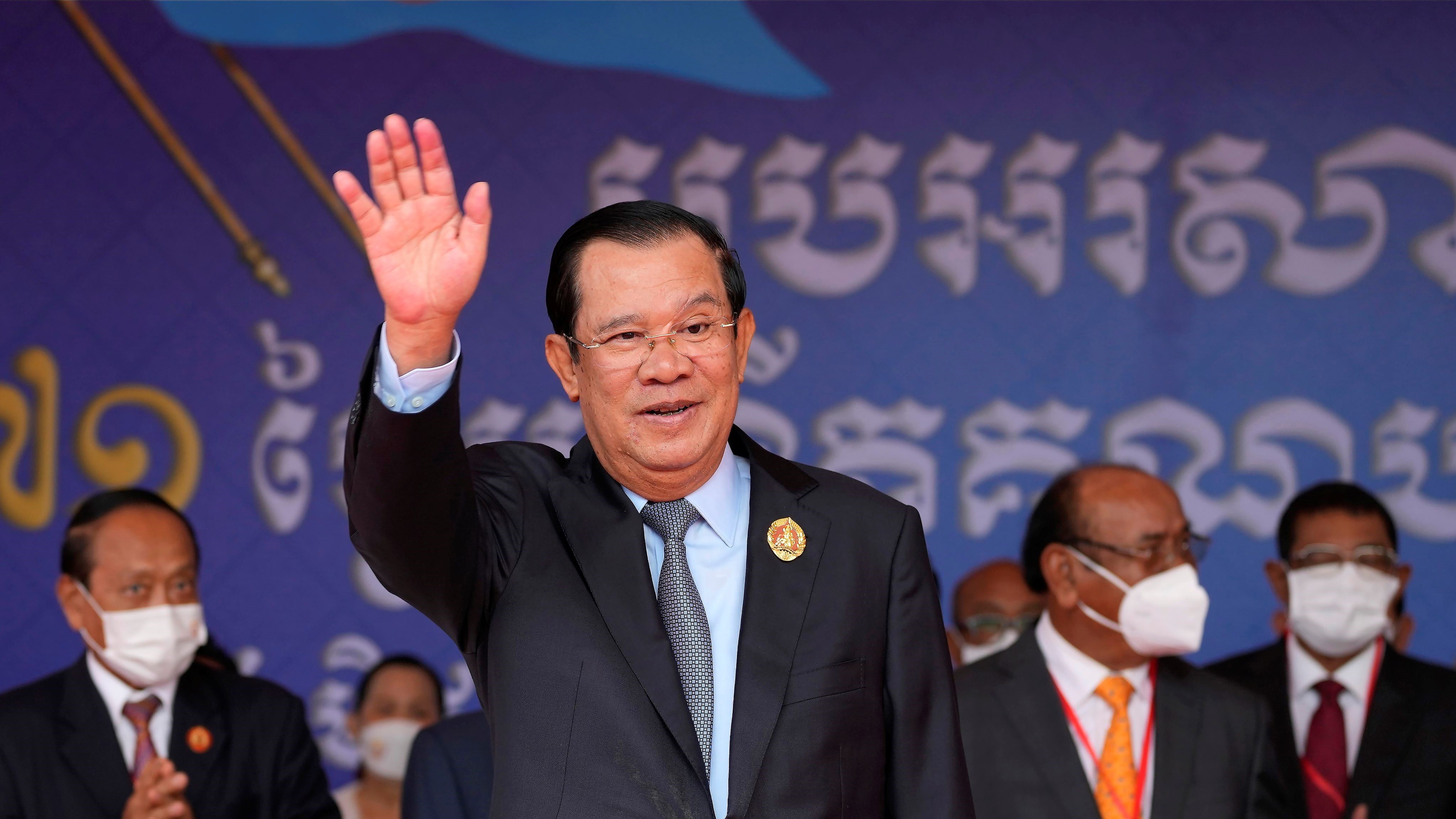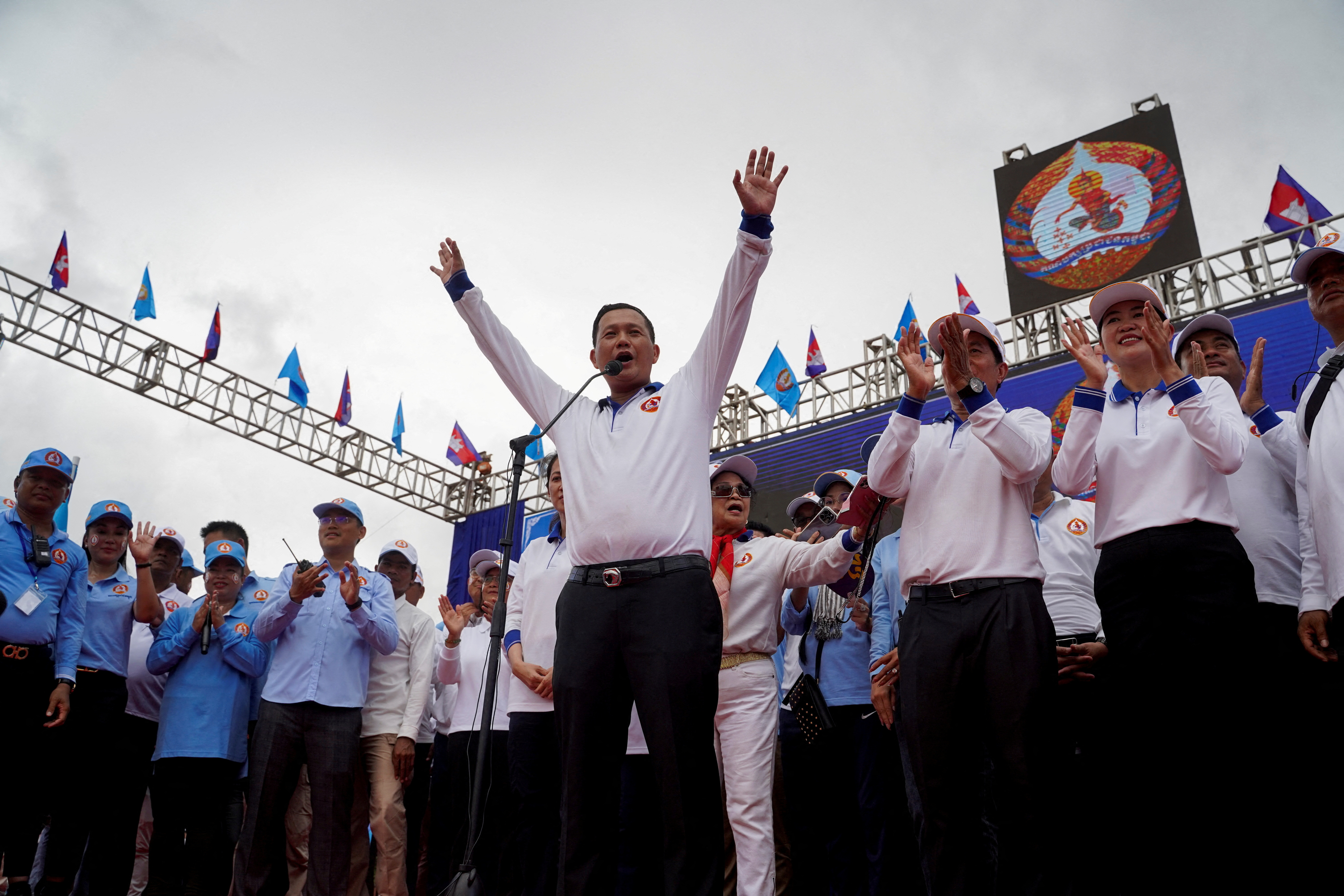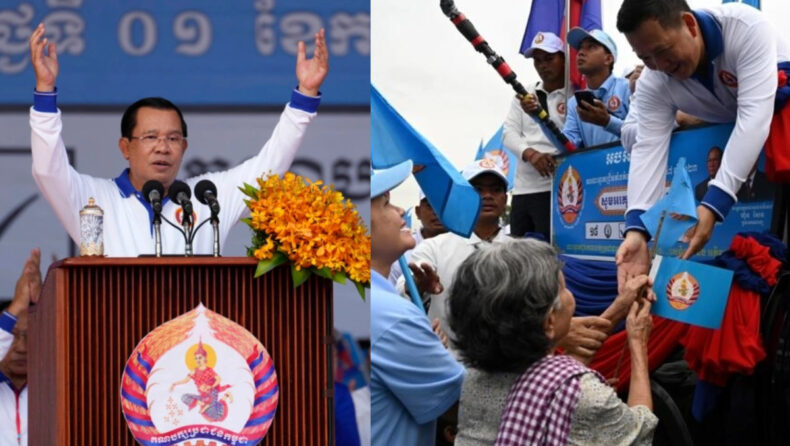Cambodia’s Prime Minister Hun Sen, aged 70, who has been in power since 1985, is seeking to extend his authoritarian rule through another tightly controlled election, leaving no significant competition as he paves the way for a potential power succession to his son.
During the country’s national elections held on Sunday (July 23), people cast their votes, witnessing the continued dominance of the long-time figurehead, Hun Sen, who has held power for nearly four decades.

Leading up to the elections, there were extensive campaigns and crackdowns on opposition figures, solidifying the grip of Hun Sen’s ruling Cambodian People’s Party (CPP), effectively leaving them with no substantial challengers.
Hun Sen: The World’s Longest-Serving Leader
Hun Sen is a prominent figure in Cambodia’s tumultuous recent history, which includes the devastating genocide unleashed by the Khmer Rouge regime, leaving lasting inter-generational trauma, deep-rooted poverty, and corruption in its wake.
Having formerly served as a Khmer Rouge commander, Hun Sen switched sides and has been at the helm of Cambodia’s government for nearly four decades.
Over the years, elections in the country were initially competitive, allowing for opposition voices, but under Hun Sen’s rule, the country has witnessed a shift towards increasing autocracy.

Dissent has been suppressed, and critics have faced imprisonment, leading many to seek refuge overseas. Through strategic control over the military, police, and influential interests, Hun Sen has successfully neutralized opposition forces, employing tactics like co-opting, imprisoning, or exiling them.
Concerns over Nepotism and Democracy
Nepotism appears to be prevalent, as Prime Minister Hun Sen has hinted at his eldest son, Hun Manet, being his anointed successor.
Hun Manet, who currently holds a position of authority as the commander of the Royal Cambodian Army, is expected to secure a seat in the national assembly during the recent elections. This victory would position him to assume the role of prime minister, potentially succeeding his father as early as next month.

These indications have sparked concerns about the state of democracy in the country under the long-lasting rule of Prime Minister Hun Sen.
Parties Contesting
In this year’s Cambodian elections, there are 17 other parties participating alongside the ruling Cambodian People’s Party (CPP).
However, these parties are predominantly small, new, or aligned with the CPP, which diminishes their ability to present a credible challenge.
The CPP has been the dominant force in the political landscape of the country for over four decades and uses the participation of these smaller parties to assert that the country maintains a vibrant multiparty democracy.
Crackdown on Independent Media and Voter Protesters
In an effort to tighten control over information and political dissent, the government of Cambodia has initiated a crackdown on independent media outlets and voter protesters.
Voice of Democracy, one of the country’s last remaining independent media platforms, was shut down earlier this year following accusations from Prime Minister Hun Sen, who claimed it attacked him and his son while damaging the government’s “dignity and reputation.”
Moreover, the government has ordered internet service providers to block the websites of three other news outlets, alleging that their reporting could negatively impact the government’s “honour and prestige” and violate Information Ministry regulations.
To further control the electoral process, the law has been modified to enforce mandatory voting. Any individual who fails to participate in Sunday’s election will be disqualified from contesting in future elections.
Global Views on Cambodia’s Election
Cambodia is facing Western criticism for its shift towards increased authoritarian rule after the U.N.-ushered semi-competitive elections.
Some U.S. lawmakers have reintroduced a bill to sanction the leaders of Cambodia for undermining democracy and violating human rights.
Despite this, Cambodia’s strong ties with China have shielded it from Western condemnation, as Beijing provides economic support and diplomatic backing. President Xi reaffirmed China’s support for Cambodia and opposition to external interference during a meeting with Hun Sen in February.












